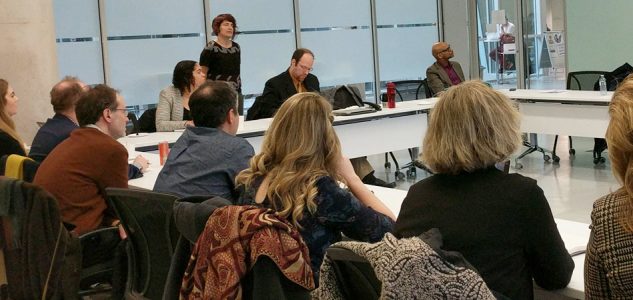Sociology of Education Conference enhances dialogue and networking in Canada

February 21, 2017
Sociologists and education researchers from around the province recently gathered on the McMaster campus for the Second Annual Canadian Sociology of Education Conference.
For the last two years Karen Robson, Ontario Research Chair in Educational Achievement and At-Risk Youth and the Chair of the Sociology of Education Research Cluster of the Canadian Sociological Association has been hosting the event which brings together researchers, staff from the Hamilton-Wentworth and Toronto District School Boards, the Higher Education Quality Council of Ontario as well as graduate students to discuss a wide range of research and ideas centered around education.
Close to 20 presenters had the opportunity to present research at various stages of their projects. In particularly the Education Conference was an opportunity for graduate students the earlier parts of their dissertations to seek feedback.
“Sociology of education covers a wide methodological, theoretical and conceptual terrain. While research in this area is most associated with examinations of schools, inequality, policy and economic development, this education scholarship intersects with a variety of research including studies of early child development, parenting, childhood and adolescence, and health.” Says Robson. “This research cluster serves to enhance dialogue and networking among sociologists of education in Canada.”
This year’s keynote speakers were Kevin Gosine from Brock University who spoke about Neoliberal Educational Reforms and Marginalized Youth Subcultures in Ontario and Kelly Gallagher-Mackay from Wilfrid Laurier who discussed Human rights, privacy and proprietary information.
Highlights of the conference also included discussions on the Indigenous University Experience, Anti-Islamophobia Education, the Rethinking Student Success as well as a presentation by Robson on the multi-year Social Sciences and Humanities Research Council funded initiative entitled “Widening Post-secondary Access Pathways of Marginalized Youth in Gateway Cities” (the Gateway Cities Project). The Gateway Cities Project includes five major urban centres in where the research team are examining the determinants of post-secondary pathways for high school students.
